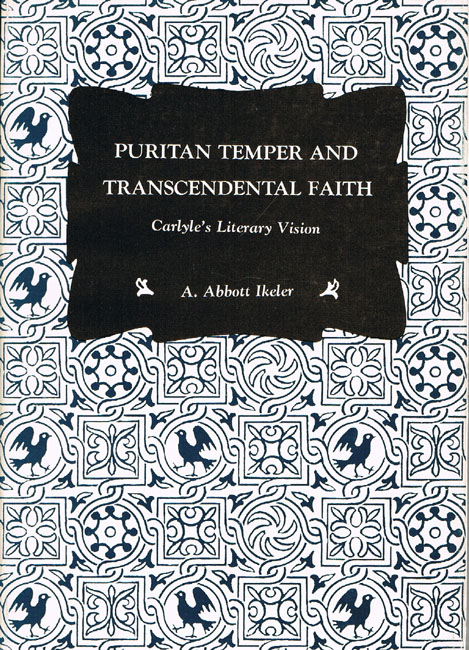Puritan Temper and Transcendental FaithCarlyle’s Literary VisionA. Abbott Ikeler |  1972 Literary Criticism / European / English, Irish, Scottish, Welsh pp. 6x9  $24.95 paper 978-0-8142-5329-8 Add paper to shopping cart Shopping Cart Instructions Review/Change Shopping Cart & Check-out |
|||
|
Over the years, students of Victorian literature have remarked in the writings of Thomas Carlyle a certain bewildering ambivalence in his attitude toward the value of literature in life and, by extension, toward aesthetic experience in general. Readers who have been drawn to Carlyle by Sartor Resartus and the early essays have found no more effective antidote to their enthusiasm for his work than the Latter-Day Pamphlets. Whereas in the earlier work, the hero’s struggles are subjects for poetic rhapsody and outrageous humor, the political problems of Sir Robert Peel recounted in the Pamphets inspire Carlyle only to a tedious invective. In 1831, Carlyle’s landscape was fabulous and obscure, his style “jeanpaulian,” his irony playful. In 1850, he cauterized the prosaic with a merely moral heat and uttered redundancies in a voice grown shrill. Various explanations of this contrariety have been proposed. Professor Ikeler, who begins by weighing each, ends by discarding all. Carlyle’s attitudes, he argues, were profoundly affected by—indeed inseparable from—his religious thought. If Carlyle’s veneration of literature and its creators sprang from his transcental faith on the one hand, his distrust and outright rejection of literary art were the result of his being the son of strict Scottish Calvinists on the other. For the first time in the critical literature, Mr. Ikeler gives serious consideration and systematic attention to this Calvinist background, which has been so much referred to and so little explored. He finds that those antithetical forces that characterize Carlyle’s moral and religious thought remain unreconciled in his aesthetic. Through an exhaustive analysis of the expressed opinions on art of Calvin, Knox, and the chief German Romantics, Professor Ikeler demonstrates conclusively that, when viewed in the light of Carlyle’s overall intellectual development, the apparent incongruities in his attitude toward art are but fugitive fragments of underlying and wholly coherent bodies of thought. A. Abbot Ikeler is an assistant professor of English at Bowdoin College. | ||||

